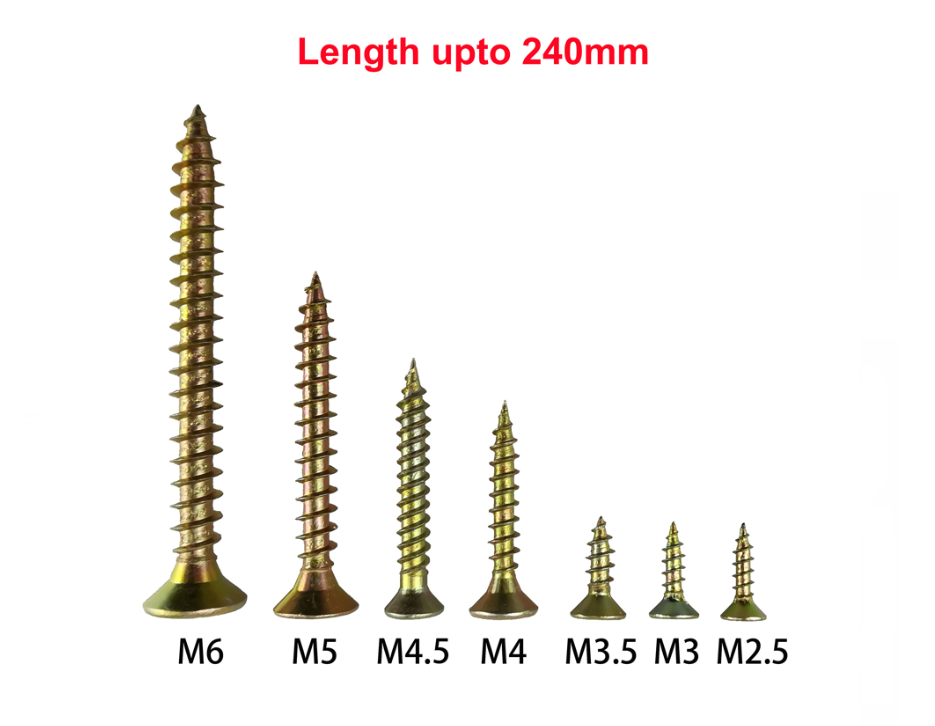Innovative Self-Tapping Screw Solutions for Efficient Assembly and Versatile Applications
Understanding Screw Self-Tapping Products A Comprehensive Overview
Screws are fundamental fasteners used across various industries, from construction to automotive manufacturing. Among the many types of screws, self-tapping screws stand out due to their unique design and utility. In this article, we will delve into what self-tapping screws are, their applications, benefits, and why they are an essential component in many technical projects.
What are Self-Tapping Screws?
Self-tapping screws are fasteners designed to create their own hole in the material they are driven into. Unlike traditional screws, which require a pre-drilled pilot hole, self-tapping screws feature a sharp, pointed tip and threads that can cut into the base material as they are driven in. This innovative design allows for a quicker and more efficient assembly process, saving both time and resources.
There are two primary types of self-tapping screws thread-forming screws and thread-cutting screws. Thread-forming screws displace material to create the internal threads while thread-cutting screws remove material from the substrate to create the necessary threading. The choice between the two depends on the application and the material being used.
Applications of Self-Tapping Screws
Self-tapping screws are versatile and applicable in a wide range of sectors. They are commonly used in
1. Construction In building projects, these screws are favored for fastening drywall, metal sheets, and wood. Their ability to quickly secure materials without the need for pre-drilling enhances the efficiency of construction processes.
2. Automotive Industry In automotive manufacturing, self-tapping screws are used for assembling various components, including panels and fixtures, where a reliable and robust fastening solution is required.
3. Electronics Many electronic devices and appliances utilize self-tapping screws for securing casings and internal components. Their precision and reliability are vital in keeping electronic devices functioning correctly.
screw self tapping product

Benefits of Self-Tapping Screws
The advantages of using self-tapping screws are significant. Here are some notable benefits
- Time Efficiency The ability to penetrate materials without pre-drilling saves time. In high-volume production environments, this can lead to substantial cost savings.
- Reduced Labor Costs Because self-tapping screws eliminate the need for pilot hole drilling, the overall labor required for assembly decreases, which can improve productivity and reduce costs.
- Strong and Secure Fit Self-tapping screws provide a tight and secure fit that can withstand various stresses, making them ideal for applications where vibration or movement may occur.
- Compatibility with Various Materials Self-tapping screws can be used with a wide variety of materials, including metals, plastics, and wood, which makes them highly versatile.
- Design Flexibility These screws come in various sizes, lengths, and finishes, allowing for customization based on specific project needs.
Conclusion
Self-tapping screws are an essential component in modern construction, automotive, and electronic applications. Their unique design allows them to create their own holes, streamlining the assembly process and providing a strong, reliable fastening solution. As industries continue to seek more efficient and effective methods of assembly, the importance of self-tapping screws cannot be overstated.
Investing in high-quality self-tapping screw products is crucial for ensuring the longevity and durability of any project. As technology advances and materials evolve, self-tapping screws will undoubtedly remain a staple in fastener technology, continuing to facilitate modern engineering and manufacturing practices.
-
Top Choices for Plasterboard FixingNewsDec.26,2024
-
The Versatility of Specialty WashersNewsDec.26,2024
-
Secure Your ProjectsNewsDec.26,2024
-
Essential Screws for Chipboard Flooring ProjectsNewsDec.26,2024
-
Choosing the Right Drywall ScrewsNewsDec.26,2024
-
Black Phosphate Screws for Superior PerformanceNewsDec.26,2024
-
The Versatile Choice of Nylon Flat Washers for Your NeedsNewsDec.18,2024










